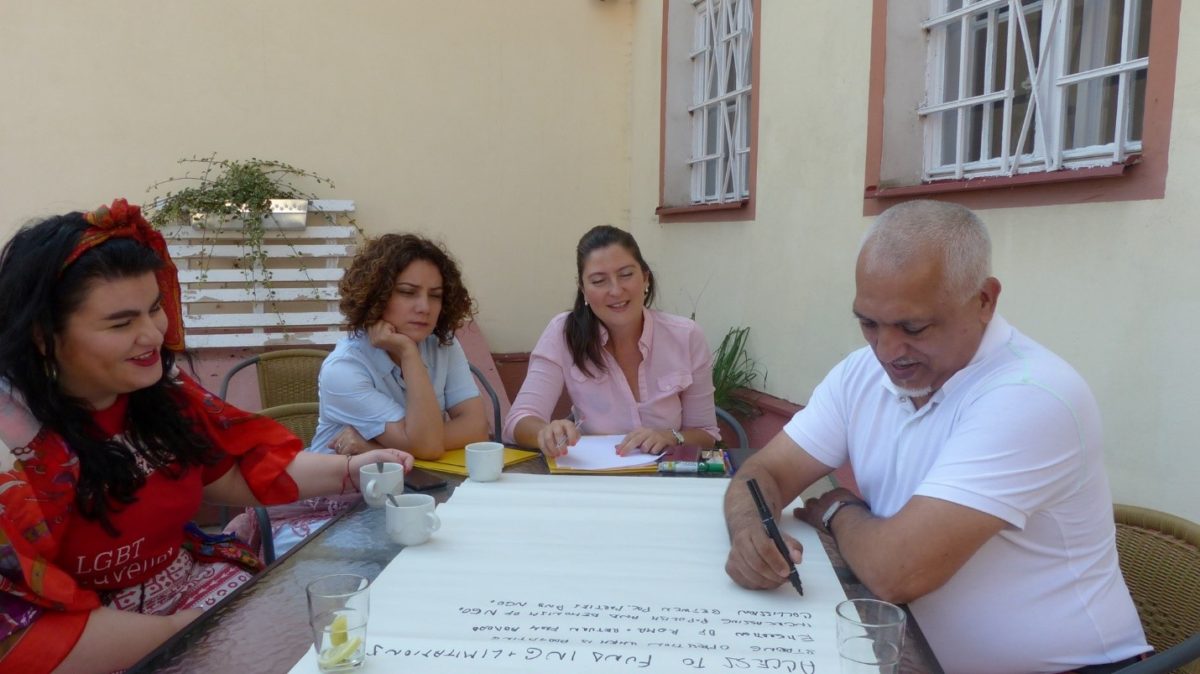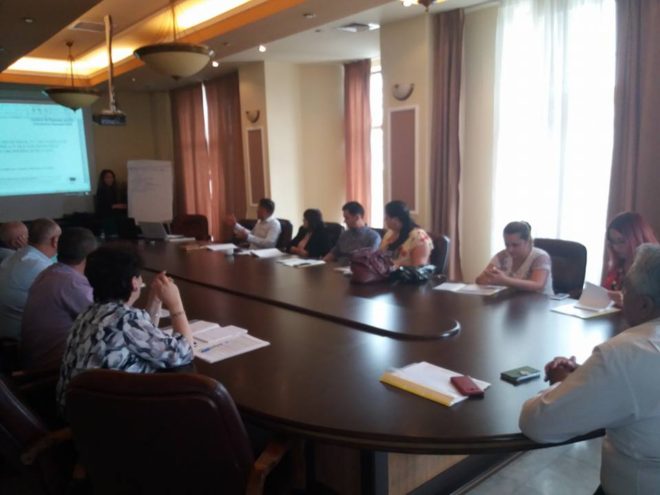ERGO Network’s Grassroots Academy for multipliers implemented in the Czech Republic: Equipping multipliers with competencies to implement advocacy trainings
In August this year, about twenty Roma advocates from different European countries gathered in Tepla, a Czech village close to Usti and Labem. For five days, they joined ERGO Network to share and explore different methods of grassroots advocacy and community organizing. We explored ways for grassroots activists who want to advocate for combatting antigypsyism, empowering Roma and promoting social inclusion. We discovered that finding new partnerships and new approaches is proving to be effective. The participants, mostly experienced multipliers on the national level, shared knowledge and experiences with advocacy in difficult environments.
After we got to know each other better and created an open and engaging learning space, inspiring stories were told by our colleagues from Zero Discrimination Association (Turkey), Integro Association (Bulgaria) and Nevo Parudimos (Romania) about certain forms of mobilization and leadership. They triggered debates about gender and power relations and on building relationships with national and local authorities. They also provided us with examples on how local advocates participate in budget planning on the local level and in community-led local development.
Participants agreed that the traditional ways of advocacy seem less and less effective, particularly in countries with far-right governments and a high level of populism in politics.
Romani activist Monika Mihalickova from the Czech organization Romea gave the participants a short training social media fundraising. Miroslav Klempar shared the experiences from Awen Amenca, a movement that fights for quality and non-segregated education for Roma children, based on the value of Roma parents’ participation.
Our Macedonian partners, Fikrija and Denis Selmani triggered the attention of the participants with their successful involvement in mobilization of Roma university students and the Citizens’ Initiative “AVAJA” and its campaign “We Vote, We Decide”. We also met with Steve Hughes, who has 20 years of experience working as a community, union, and political organizer in both the United States and Europe.
Finally, the group had the pleasure to visit Romano Jasnica, a local Roma organization in Trmice founded in 1998 that focuses on providing social services, implementing educational, leisure and cultural activities for children, youth and adults at risk of social exclusion or socially excluded people. The organization connects work on social inclusion with creating employment opportunities, supporting young entrepreneurs, but also engaging Roma in the local politics. Already for the second term, there are two Romani members in the local council.
The participants appreciated the learning experience and emphasized the importance of different participatory methods that ERGO Network used to engage them as much as possible in diverse roles and capacities. With those methods and national follow up trainings in the Czech Republic, Slovakia and Hungary we will reach out to more Romani grassroots activists and organizers and make their voice heard also in the national and European policies.
The activity received generous financial support from the International Visegrad Fund and from the European Commission’s EaSI programme.





